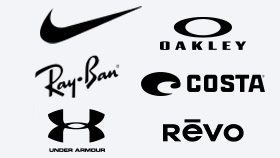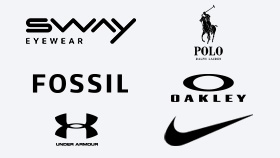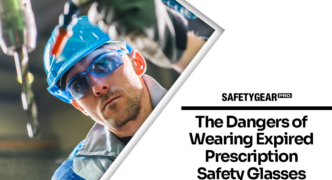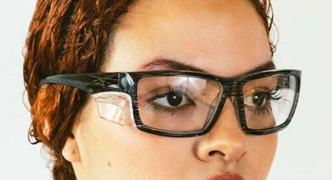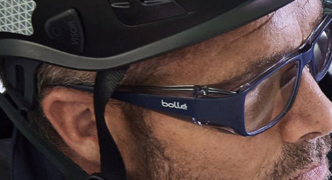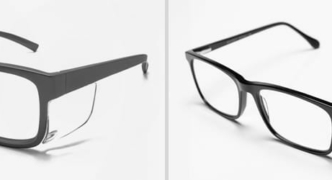
Sunglasses are often used as a fashion statement, but there is much more to this eyewear than appearance. While one benefit of a carefully chosen pair of sunglasses is the wow factor, the biggest benefit is the protection your eyes receive against the damaging rays from the sun. Vision problems are a long-term effect of exposure to UV rays, but sunglasses reduce headaches and eye strain.

Choosing the Best Sunglasses
The right pair of sunglasses takes into account protection from the sun, the most comfortable fit, a stylish aesthetic and durability for your lifestyle. Here’s how to know which sunglasses will be the best choice for both form and functionality.
Sun Protection
The purpose of sunglasses is to keep the eyes from damaging UV and light exposure. UV protection should be the most important factor in selecting glasses, but you need to clearly see a label reading 100% protection against both UVA and UVB rays to know you are working with quality lenses. You could also look for a label that reads UV 400, which indicates it blocks out all ultraviolet light. The American Optometric Association also recommends lenses that will screen 75 to 90% of visible light. You still find this level of protection when working with prescription sunglasses.
Fit and Frame
Your sunglasses should be snug and comfortable on your face. Wire sunglasses are known for stretching over time and sliding down the nose, while plastic frames can be hard on the temples. Without the right arm length on the glasses and width in the frame, you could have too much pressure over the ears.
Style
The style of sunglasses you choose impacts how well the frame and lenses will sit on your face and protect your eyes. Wrap-around frames provide the best protection against UV exposure. Each face shape is suited to a particular style of frame, and shopping the right style ensures the frame will sit close to the eyes and match the contours of the face for maximized protection.
- Round face: square, rectangular, shield or wrap-around
- Square face: rounds, butterflies, oval or aviators
- Oval face: compatible with any frame style
- Rectangular or oblong face: wayfarer, oversized, vintage, rectangular
- Diamond face: oval, rimless or frames with gentle curves
- Heart face: butterfly, aviator, rimless or shield
Durability
You will only get the protection you need if your sunglasses can withstand the wear and tear of your activity level and lifestyle. You should wear sunglasses whenever you are outdoors, even if the sun doesn’t seem bright or it’s hidden behind the clouds. The UV rays are still present, but you can also suffer from eye strain when squinting and straining against the glare of the sun. If you rely on sunglasses for driving or for use around water or lots of reflective surfaces, opt for polarized sunglasses to reduce the glare. You can even order impact resistance lenses with full UV protection.
Buying the Best Sunglasses
For a huge section of the highest quality sunglasses, shop with Safety Gear Pro. You will find options for polarized eyewear, impact resistance and total UV protection with stylish frames and colors.
FAQs
Do You Need a Special Size When Buying Sunglasses?
The size and shape of sunglasses determine how well the pair will fit on your face and properly protect your eyes from the rays of the sun. Sizes that are too big or too small can cause discomfort, increasing the likelihood of removing the glasses and exposing your eyes to damage.
How Do You Clean Sunglasses?
Protect your lenses and frames from scratches by rinsing your sunglasses in warm water and using mild liquid dish soap to clean the surfaces of the lenses. Use a soft, absorbent cloth to dry or clean the lenses, as paper-based products could result in scratches.
How Long Are Sunglasses Good For?
Although sunglasses don’t have an expiration date, you will want to get a new pair if you wear prescription lenses and your vision has changed. The amount of time you spend in the sun or wearing the glasses can also affect comfort and fit, so it’s recommended to replace your sunglasses every two years.
Why Would My Sunglasses Be Blurry?
If your lenses are dirty or smudged, they can distort your vision. However, prescription glasses that don’t fit well could have an impact on your ability to see clearly, as the lenses won’t be correctly sitting against the eye.
Will My Eyes Need To Adjust to Sunglasses?
Wearing glasses takes some getting used to, and the same goes for sunglasses. Gradually wearing them for longer periods each day will help your eyes transition more smoothly.








